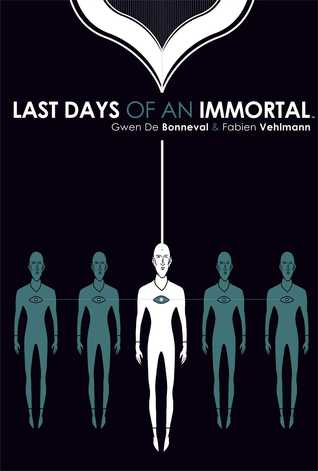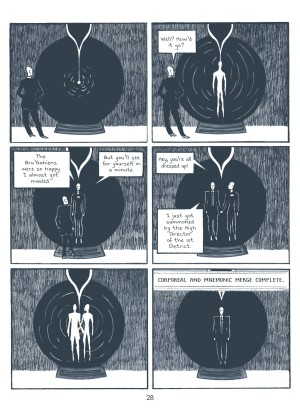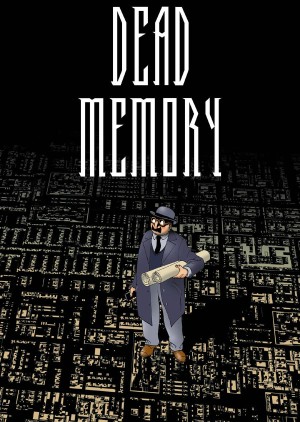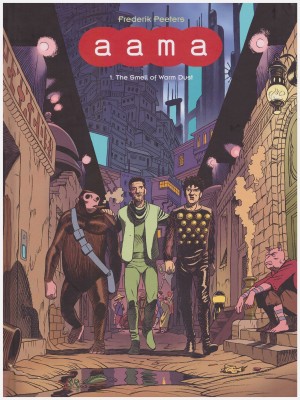Review by Ian Keogh
In the future humanity co-exists with alien races and complex data retrieval processes have all but conquered death. When physical death occurs, the total life memories and experiences can be transferred to a new body from back-ups, and these bodies can be modified and consciousness transferred between them. This isn’t without problems. Immortality means more humans occupy less space, so official permission is required for children, and this can take decades.
The narrative focus is Elijah, an investigator working for the Philosophical Police, looking into why an alien would murder one of his human work colleagues, a person they claim to like. Death isn’t permanent, but the crime retains an importance as an ethical arbiter.
Fabien Vehlmann isn’t someone well known to English language graphic novel readers, yet he’s been nominated for awards at the Angoulême Comic Festival on several occasions, and his output is admirably diverse, sprawling across genres from horror to children’s material. It’s always thoughtful, and packed with interesting ideas, and in this Last Days of an Immortal is no different. It’s very much a conceptual piece, with Elijah having to bring his arbitration skills to bear on two non humanoid species who share a planet. To do so he must create a duplicate body that shares his memories, which Elijah does only with great reluctance as there are consequences.
While wrapped in a mystery with a very inventive solution, the wider purpose of Last Days of an Immortal appears to be a repository for Vehlmann’s fascinating ideas, peppered throughout the story, and lingering. There’s a society where lives are prescribed as if plays. Is dullness inherently something to be valued because it’s the threshold of all possibilities? Is a person literally the same person when they’re with the parents as they are with their friends? Late on Vehlmann even undermines the possible pretensions of philosophy simultaneously dividing it from the ease of rhetoric. All this is encompassed in Elijah’s journey. He’s established as grand within his society yet from an early point is afflicted by a burden of the unknown that ultimately leads to a very human decision.
The depth and density Last Days of an Immortal carries is belied by Gwen de Bonneval’s illustration, which in isolation appears bland, although it can veer into the surrealistic, with some aliens seemingly cribbed from Hieronymous Bosch. It’s only on reading that the purpose of his chosen style becomes apparent. The method of conveying multifaceted concepts is by keeping the art as simple and sterile as possible. There are no detailed backgrounds to distract from the script, and a compositional strength encompassing a deliberate flatness ensures a focus and a contemplation that serves Vehlmann’s intellectual prodding very well indeed. Within this, there’s a masterful emphasis on time, in several places indicated by pauses, or repeated panels with little movement.
A couple of moments indicate a greater attention to the sideshow than the main event, and a breakthrough regarding species identification that’s been ignored for centuries is just too convenient. Or it would be if the plot were the point. It’s not. It’s a peg onto which Vehlmann hangs his thoughts, and those thoughts are worth absorbing. Few graphic novels supply a mood and presence equivalent to Last Days of an Immortal, and that alone is to be cherished, but the book is so much more.





